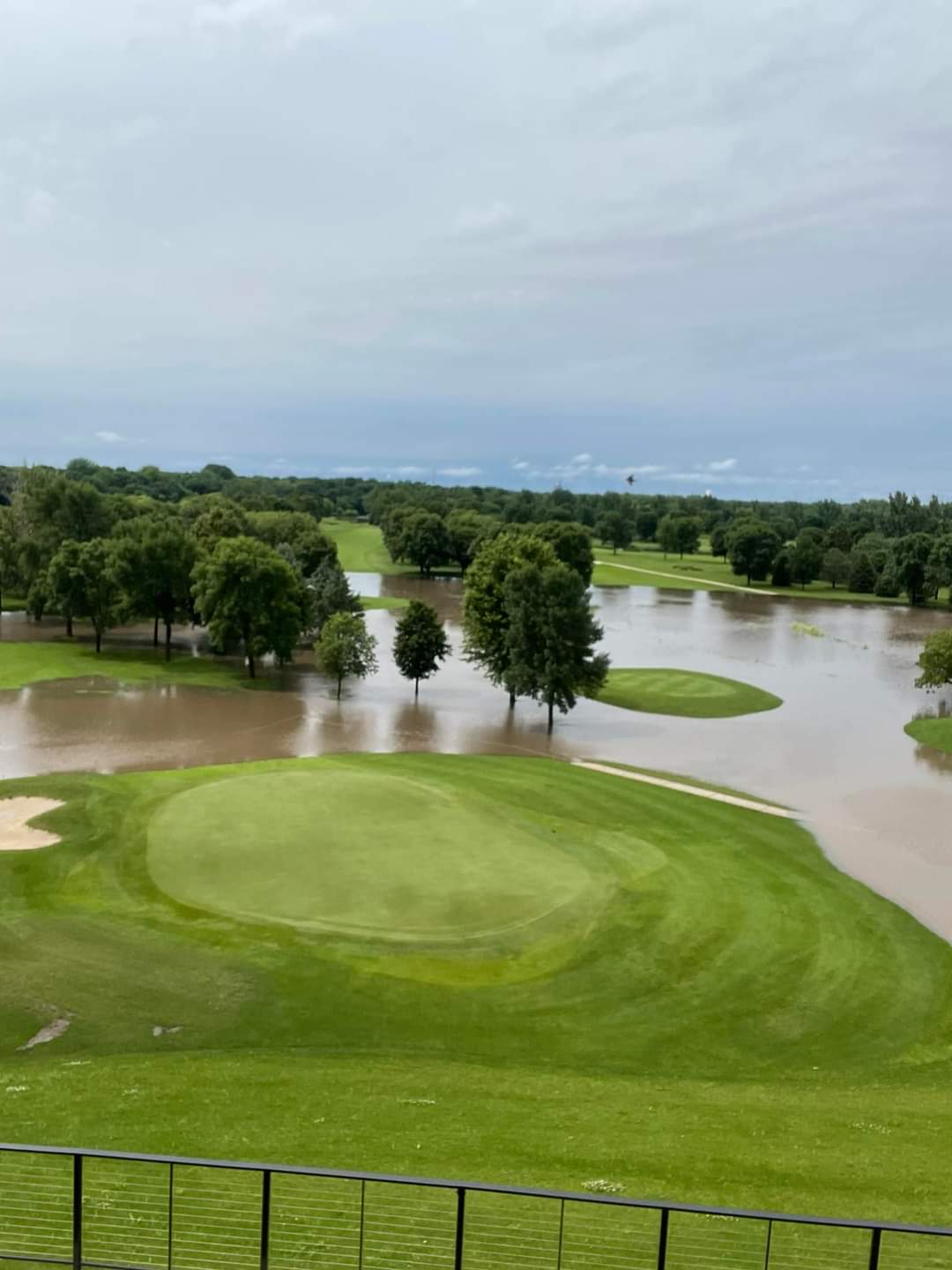Strong storms with powerful winds that have brought historic flooding to the Midwest will continue their assault across the region deep into next month, AccuWeather forecasters warn.
That’s bad news for the folks in Brandon, South Dakota, just a few miles outside of Sioux Falls, where heavy rains have wreaked havoc on the public golf course, forcing its closure until at least July 4.
The course had seen similar damage a few years ago and bunkers had just been rebuilt in 2022 after the most recent round of flooding. This time around, it appears the course’s ninth fairway will be mostly lost as nearby Splitrock Creek swelled.
According to a story at Dakota News Now, the course hasn’t seen debris like it did in previous floods, but a slow-moving buildup of sludge that came from neighboring farms has added a distinct smell.
“Lots and lots of silt,” said long-time course superintendent Kelly Eilers. “It moved in slow. All the farm fields that ran into the creek kind of deposited everything wherever it floods, and it’s a mess. Obviously, the viewers can’t smell, but it’s awful. It’s awful.”
The course’s clubhouse sits high on a hill, with a view of several holes, including the finishing holes on both the front and back nine holes. A pond sits between them. Once the harshest of the storms rained down, the pond overflowed into a deluge that swamped both of those holes and greens, plus the driving range next to the ninth green.
“We had three bunkers go underwater completely, and we had about three-quarters of an inch of silt in the bunkers,” Eilers said. “So, we came in, we scooped the whole top of the bunker out and now we have sand sitting in the parking lot to rebuild these bunkers.”
Flood waters are receding in some rivers across battered areas of Iowa, Wisconsin, Minnesota, South Dakota and Nebraska. But additional rounds of storms, including quick-hitting, powerful derechos, will push already record-high river levels to new extremes for at least the next couple of weeks. The storms will continue to move east to southeast along the northern edge of a large heat dome in the southern U.S., forecasters say.
USA Today’s John Bacon contributed to this report.

